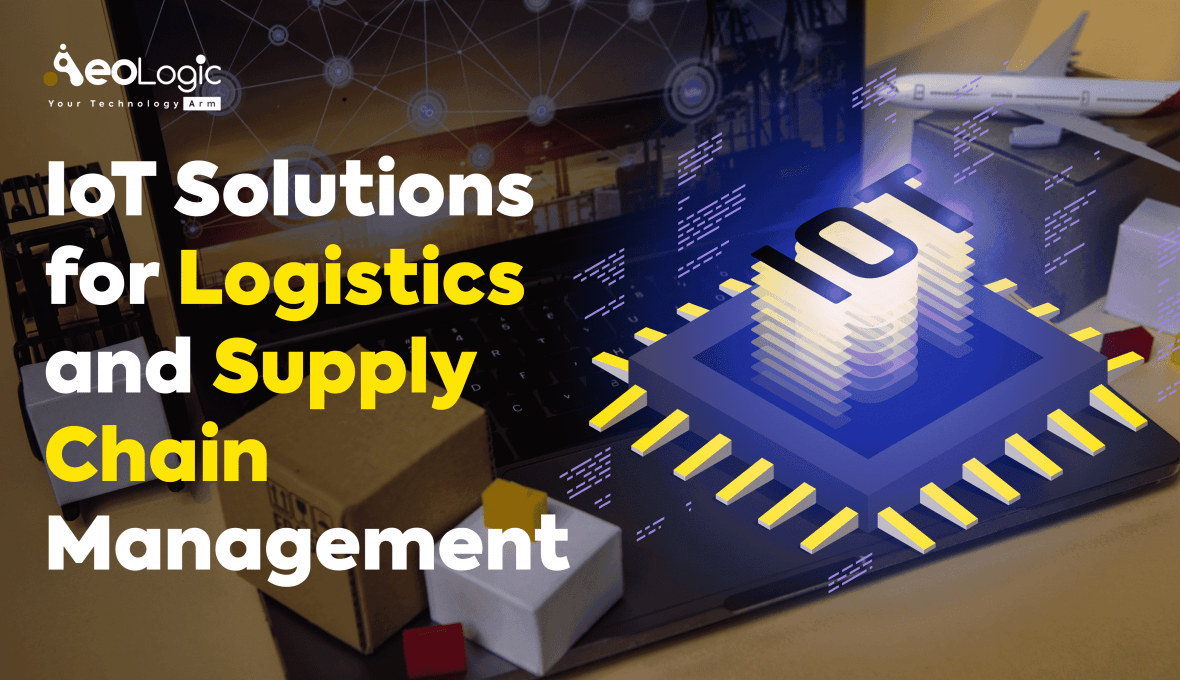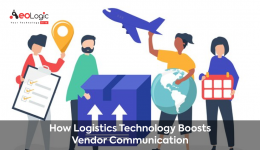The supply chain and logistics industry globally are undergoing unprecedented challenges and transformations. They are highly turning to Industry 4.0 technology for advancements, with the Internet of Things (IoT) tech as the critical component. IoT solutions for logistics and supply chain management is the new trend in the industry.
Today, IoT solutions for logistics and supply chain management (SCM) is changing the industry. Forward-looking organizations are leveraging from IoT devices. In order to transform complicated supply chains into complete connected networks. For supply chain management verticals, tracking & monitoring are a few of the major objectives of IoT installment. The technology is helping in allowing warehouse and fleet managers for keeping track of their cargo and inventory.
Get in touch with us to know more about IoT Solutions!
Also read: How to Implement RFID in the Automotive Supply Chain
Role of IoT in Supply Chain Management & Logistics
One can identify applications of the Internet of Things at every level of supply chain management. Following are a few examples:
Real-time Tracking of the Location of Goods & Shipments:
Supply chain businesses can link interconnected IoT devices to storage containers or products .
- The GPS satellites then gets the location information sent by IoT devices. It helps in tracking the movement of goods & shipments simpler.
- In addition, they get messages if the shipment begins moving to the wrong location or has stopped at an unauthorized place.
- And moreover, timely intervention by managers aids in avoiding delays or loss of goods.
Monitoring Storage Conditions:
Environmental aspects are one of IoT’s most significant applications in the supply chain.
- It includes light intensity, pressure, temperature, humidity, exposure to the atmosphere, and much more.
- Supply Chain managers help in keeping check and maintaining the needed environmental thresholds within the shipment and other storage facilities like warehouses. It helps in decreasing or even eradicating spoilage of perishable goods.
Benefits of IoT in Supply Chain Management & Logistics
IoT is changing complex supply chains into interlinked networks. The data gathered by IoT devices help in streamlining jobs across the supply chain and get timely corrective initiations for minimizing and eliminating errors and losses.

Following are some of the advantages of implementing IoT for logistics and supply chain:
Enhanced Visibility:
It is across every level of the supply chain management, from manufacturing to retail sector. Raw material suppliers are using IoT devices for collecting data on aspects impacting the timely & quality availability of deliverables. For example, monitoring the health of crop for agriculture, livestock health for farming, and logging operations for forestry. Likewise, retailers are integrating IoT for enhancing the accuracy of goods pickup and augmenting material handling output. They are also benefiting from tracking products across shelves for improved inventory management and measuring store traffic for enhancing display and utilizing space.
Better Collaboration between Teams:
Complex value supply chains typically break into a order of data silos. Obstruction in the supply chain management tend to appear as teams are referring to different data and are not on the same page. It is specifically true with organization using legacy systems with lesser or no data analysis potential. As IoT-powered solutions are also using cloud and data analytics capabilities, they segment the data silos providing one version of the truth to all groups across the value supply chain. Furthermore, it helps in enhancing the collaboration between the teams & in turn, helps rapid resolution of issues.
Optimum Utilization of Assets:
IoT for logistics and supply chain brings the much-required connectivity for allowing supply chain and logistics managers. In order to modify their fleets. In addition, they can plan more intelligent routes, identifying delayed assets, monitoring asset proficiency and fine-tune operations for increasing delivery numbers. Furthermore, Machine Learning (ML) & AI-enabled processes are helping in deciphering the data delivered by IoT devices and process out predictive analytics. It allows in improving fleet maintenance, vehicle monitoring, cargo management, and environment-conscious operations. Therefore, IoT is offering improved visibility, savings, manageability, security, decreased downtime, and optimal utilization of assets.
Improved Customer Experience:
The smooth operation of supply chains will be resulting in the managers meeting their end customer requirements in terms of the time and quality of deliveries. On the other hand, it is enhancing customer experience. And, in turn, produced outcome in boosting the business growth. Further, they can even measure shipments and products in real-time data and precisely calculate the delivery time. Moreover, by recognizing delivery concerns early, they can make corrective measures. They are also making alternate delivery routines for meeting service-level agreements.
Better Inventory Management:
Inventory tracking and controlling is an important feature of supply chain and warehouse management. IoT devices help in collecting and measuring stock levels and inventory status for optimization and better management. IoT-powered inventory tracking systems are providing accurate data to supply chain managers. This entails distribution & transportation companies. Subsequently, it helps them in smoothly managing the supply chain by keeping record of product availability and limiting orders accordingly. All while preventing avoidable shortages.
Also read: The Role of IT in Supply Chain Management
Concluding Thoughts
As discussed in the blog, IoT for logistics and supply chain management has a huge range of applications. It helps in the tracking and monitoring of goods, getting more clarity to the communication process, and supporting planning precision. Enterprises are already identifying the advantages that IoT delivers in improving visibility and enhancing the life of their supply chain. As the IoT technology moves further, there will be more and fast implementation.
Connect with us to know more about how you can integrate IoT in your business.






